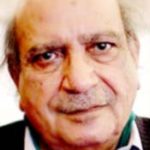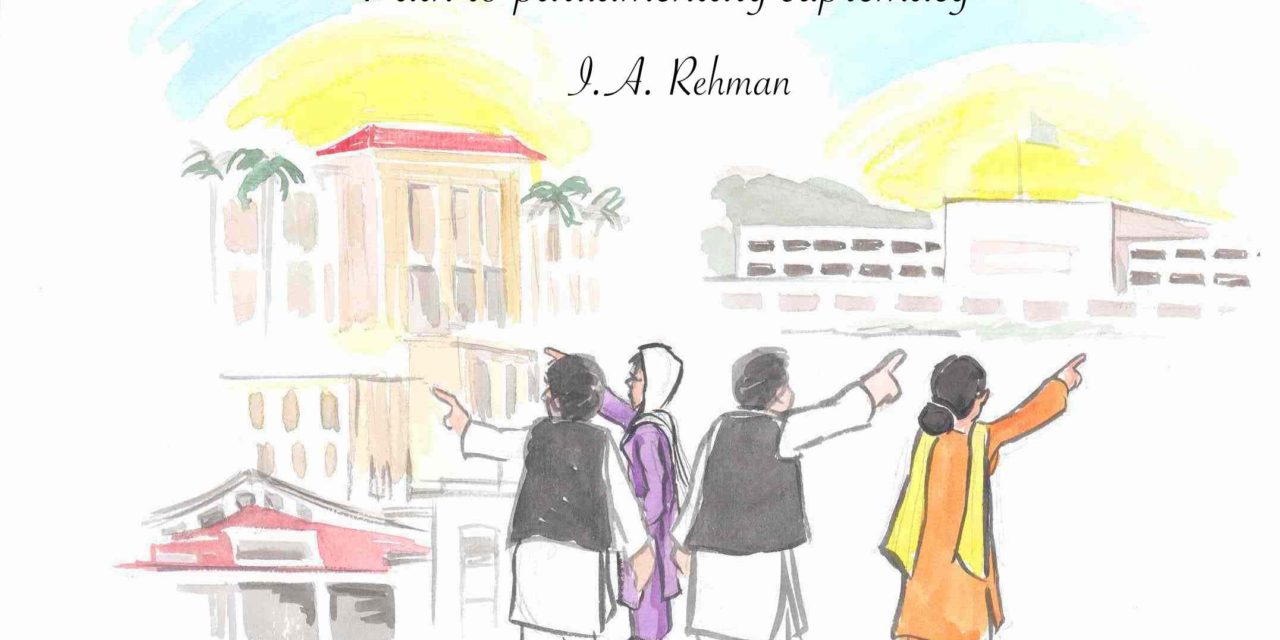I.A. Rehman

Let me begin by telling two stories. In the aftermath of the Sino-Indian war of 1962 President Ayub Khan sent a message to the Indian Premier, Jawaharlal Nehru, through A.K. Brohi, who had served as Pakistan High Commissioner in New Delhi. Nehru said he had no time to receive Brohi as the Lok Sabha was holding a debate on the failure of the foreign policy. Eventually he invited Brohi to see him in his room at the parliament house at lunch time. Brohi noticed that the Lok Sabha proceedings were being relayed to the PM’s room. He asked Nehru why he exposed himself to bitter attacks in the Parliament while he could listen to the debate in the comfort of his special room.
Nehru said,” The only thing we have achieved is to make sure that whoever wishes to rule India will have to face the parliament.”
In Pakistan dictators have begun their reign by sacking the parliament. During the World War II while the Nazi air force was heavily bombing London the House of Commons had to be briefed every day.
The idea of a parliament perpetually in session is alien to Pakistan politicians. The minimum number of days the houses of parliament must meet in a year is interpreted as the maximum number of days they should meet. In the case of Pakistan, the ruling party – the Muslim League had very meager political capital. Only a few of the founding fathers had direct experience of parliamentary democracy.
Yet during 1947 -1950 the parliament was very active. Most of the government policy decisions were taken under parliamentary sanction. This part of our history has been washed away by the authoritarian rulers’ relentless demonization of political parties and politicians.
The first blow at parliament’s supremacy was struck in October 1951 when in the wake of Liaquat Ali Khan’s assassination it was not consulted on the appointment of Khawaja Nazimuddin as prime minister and Ghulam Muhammad’s elevation to the Governor-General’s position. Two years later Nazimuddin was sacked while he enjoyed the support of a majority in the parliament and it had just approved the budget presented by his government. One year later the parliament was summarily dissolved when it exercised its right to clip the Governor-General’s powers.
Since 1958 all military coup makers have sacked the parliament, including the Senate that is not subject to dissolution, and presidents have similarly mistreated the parliament. All these instances of the rulers’ treatment of the parliament as an easily disposable house maid have greatly weakened the institution of the parliament.
One of the principal causes of the Pakistan parliament’s weakness is the executive’s freedom to bypass it. The president can go to war or sign a peace accord without consulting the parliament. The government can sign international treaties without informing the parliament or getting them ratified by it.
What makes a parliament strong? Singing paeans to the leader of the government or demonizing the opposition doesn’t make a parliament strong; in fact such perorations have no place in the proceedings of a mature legislature. A parliament gets strong when it realizes its responsibility to the people and scrutinizes the government’s policies and actions. This is done by asking questions and calling for a debate on issues of concern to the people through adjournment motions. We find that in our country the Question Hour has been reduced to a meaningless formality. The executive seldom takes questions seriously and questions are often killed by presiding officers in their chambers. Adjournment motions have become rare affairs.
The parliamentarians too have failed to make the parliament strong. Time was when getting elected to parliament was a reward in itself. But now election to the parliament has been made an extraordinarily expensive enterprise and parliamentarians generally wish to recover their investment with compound rate of interest as soon as possible. They cannot do this by criticizing the government. The system of giving grants to the parliamentarians ostensibly for development work in their constituencies deprives them of the ability to question government policies. They become government’s camp followers.
The extraordinary powers given to party leaders to discipline and punish their followers also breed conformism. In Pakistan the heads of government have undermined the strength and prestige of the parliament by practically boycotting its sessions. The common citizen has been alienated from the parliament by removing some matters of concern to her/ him from its jurisdiction. People used to watch parliamentary proceedings with interest, especially during budget sessions, when parliament fixed the prices of salt, kerosene oil, postcard and railway tickets. The removal of these matters from parliament’s jurisdiction has made it weaker by depriving it of citizens’ support.
Finally a parliament will be strong if the environment outside is conducive to debate on national issues. A society deprived of civil liberties and where freedom of expression and association are not duly respected will be incapable of helping the parliament become strong.
[Mr. I. A. Rehman is a veteran journalist with over 65 years of legendary contributions. He is the most revered public intellectual and human rights defender in Pakistan]


